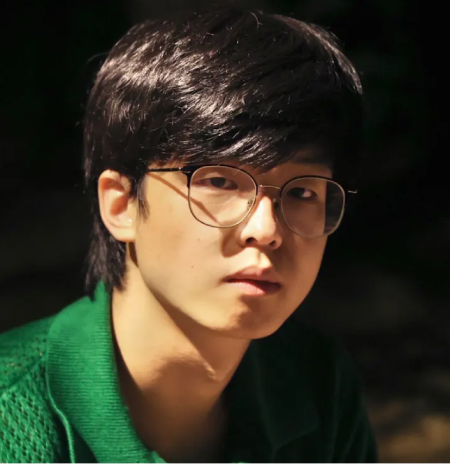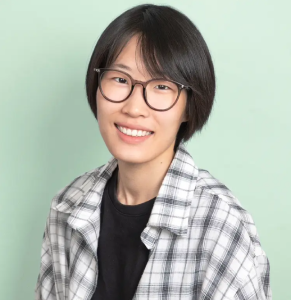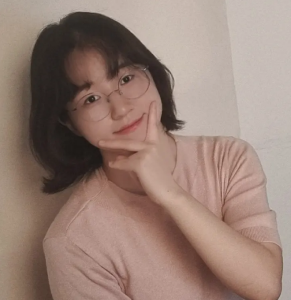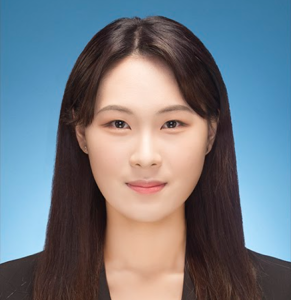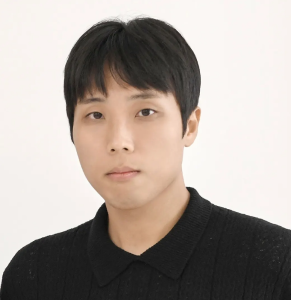People
Students
-
Taein Song Master's StudentMusic cognition / Music psychology / Music and language / Cochlear implant
- 2024, B.M., Sungshin Women's University, Musicology
Taein Song wants to prove the good influence of music objectively and quantitatively, to make it applied more practically to human life. Based on a wide understanding of music psychology and cognitive science, she is interested in the correlation between music and language, and the music appreciation by CI users.
-
Hayden Arnold Master's StudentPolitics, Social Media, Big Data, Machine Learning, Artificial Intelligence
- B.A. Political Science, Concentration in Foreign Affairs, University of Arizona 2024
- B.S. Computer Science, University of Arizona 2024
- University of Arizona Department of Computer Science Senior Teaching Assistant (3 years); Pima County Democratic Party Data Intern
Before coming to KAIST, Hayden received dual degrees in Computer Science and Political Science with a Concentration in Foreign Affairs, along with minors in both Korean and Spanish Language. During his time as an undergraduate student, he had exposure to both the computational and political worlds through his work as a Teaching Assistant at the University of Arizona Department of Computer Science as well as working as a Data Intern at the Pima County Democratic Party. As a cumulative thesis, he collected data and wrote on the correlations between the election of Yoon Seok-yeol and the rise of online populist anti-feminism in South Korea. Through these experiences, he has become keen on realizing the potential of machine learning and the greater application of computational techniques to levy advantages both on the domestic and international political fronts, as well as predict the ever-changing political and demographic landscape and the societal changes that may result in the coming years.
-
Jihoo Lee Master's StudentVocal Language, Language Cognition, Vocal Recognition and Production of AI
- 2023, Bachelor's Degreem Ewha Woman's University, Psychology Major
Hello, my name is Jihoo Lee and I'm in LPS Track. I'm interested in increasing the effectiveness and efficiency of communication between human and AI. Thank you.
-
Baek Ji-young Master's StudentUrban Inequality, Local extinction, Data Analysis
- 2024 Bachelor of Data Science, Sungkyunkwan University, Data Science
- 2024 Bachelor of Economics, Sungkyunkwan University, Statistics
Jiyoung Baek studied Data Science and Statistics in her undergraduates, where she developed a keen interest in finding insights, while systematizing invisible social phenomenon by analyzing data. She is particularly interested in social issues like 'Urban Inequality and local extinction', so that she aims to explore solutions to this challenges through data analysis. She hopes to contribute to a sustainable society, by addressing social issues such as 'Local extinction and balanced development'.
-
Dong Hoon Jung Master's StudentDigital Humanities, Computational Literary Studies, LLMs for Literary Studies
- 2020, Master of Science, Hanyang University, Department of Intelligence Computing
- 2015, Bachelor of Engineering, Chung-Ang University, Department of Computer Engineering
Dong Hoon Jung has a background in computer engineering and human-computer interaction and is currently studying digital humanities. He is interested in exploring various computational methods for analyzing literary texts, focusing on how these techniques can provide new insights into both classic and modern literature. Recently, he has also been investigating the use of large language models (LLMs) to reinterpret literary works, uncovering new meanings that traditional literary analysis might not easily reveal.
-
Feygenson Sofya Master's StudentMicroeconomics, Labor Economics, Labor Substitution Technologies Impact on Labor Markets
- 2024, BA, Yonsei University, Economics AI Concentration Major
I am currently a master’s student in the Department of Digital Humanities and Computational Social Sciences. I aim to analyze how technological advancements impact labor markets and the resulting social and economic changes, using data analysis and modeling techniques.
-
Eunhoo Lee Master's Student18th and 19th Century British Literature, The Golden Age of Detective Fiction, Agatha Christie, Literary Geography, Digital Humanities
- B.A., English Literature and Linguistics, Kookmin University, 2023
Eunhoo Lee, majoring in Digital Humanities, studied English Literature during her undergraduate course. Currently, Eunhoo Lee is interested in data related to the space in British mystery novels of the 19th and 20th centuries, especially Agatha Christie mystery novels. Through this study, her goal is to systematically analyze the pattern of geographical or symbolic information about the space in the work to the reader, and to visualize and present the way in which cognitive distortions that occur in the process are connected to the narrative characteristics of mystery novels.
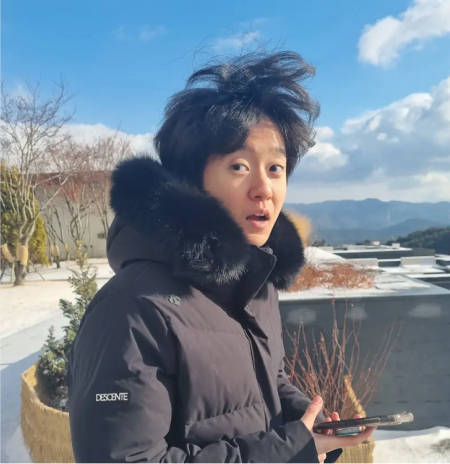
-
ga-eun Ahn Master's StudentSocial Psychology, Social Learning, Emotion, Emotion Regulation
- B.A.(2024) Sungshin Women's University, Psychology
Ga-eun Ahn focuses on research to understand how people learn emotion and emotion regulation through social interaction. By studying real-time interpersonal interactions, she aims to understand how emotions and emotion regulation are learned. She is also interested in identifying adaptive emotion regulation strategies and their impact on communication, health, and mortality risk factors.
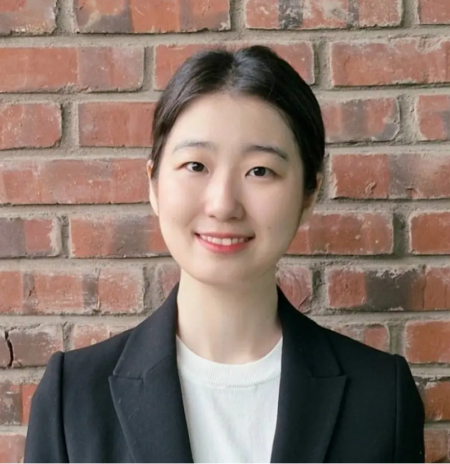
-
Gahyun Lee Master's StudentCognitive Psychology, Visual Cognition, Visual Information Processing, Visual Arts
- B.A. in Psychology, The Catholic University of Korea, 2024
- B.A. in Business, The Catholic University of Korea, 2024
Gahyun Lee is interested in how the human visual system perceives and understands the external world. In particular, she aims to understand and quantify the interaction between the visual elements of artworks and beholders. She hopes to contribute to visual intelligence based on a deep understanding of the human visual system.
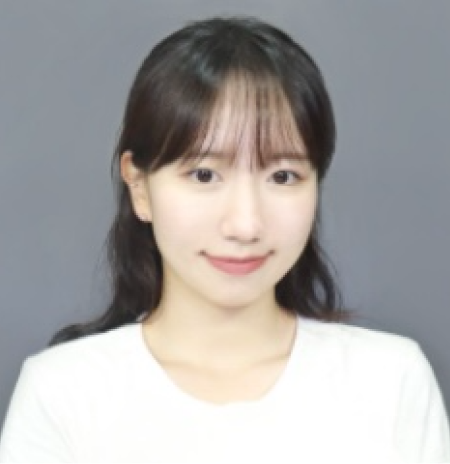
-
Hanul Hong Master's StudentDigital Humanities, Philosophy of Information New Materialism, LLMs, Expansion of Philosophical Methodologies, Using AI Philosophical Justification for the Adoption of AI Methodologies
- 2024, Master’s Degree, KAIST, School of Digital Humanities and Social Sciences, Digital Humanities Track (current)
- 2024, Bachelor’s Degree, Yonsei University, Department of Philosophy
- 2024, Bachelor’s Degree, Yonsei University, College of Artificial Intelligence and Convergence, Department of Computer Science
- Innerwave Co., Ltd., AI R&D Manager (2021.01 ~ 2024.02)
- Innerwave Co., Ltd., Web Developer (2020.09 ~ 2020.12)
PublicationKang BS, Lee SU, Hong S, Choi SK, Shin JE, Wie JH, Jo YS, Kim YH, Kil K, Chung YH, Jung K, Hong H, Park IY, Ko HS. Prediction of gestational diabetes mellitus in Asian women using machine learning algorithms. Sci Rep. 2023 Aug 16;13(1):13356. doi: 10.1038/s41598-023-39680-8. PMID: 37587201; PMCID : PMC10432552.
Wie, Jeong Ha, Se Jin Lee, Sae Kyung Choi, Yun Sung Jo, Han Sung Hwang, Mi Hye Park, Yeon Hee Kim, Jae Eun Shin, Ki Cheol Kil, Su Mi Kim, Bong Suk Choi, Hanul Hong, Hyun-Joo Seol, Hye-Sung Won, Hyun Sun Ko, and Sunghun Na. 2022. "Prediction of Emergency Cesarean Section Using Machine Learning Methods: Development and External Validation of a Nationwide Multicenter Dataset in Republic of Korea" Life 12, no. 4: 604. https://www.mdpi.com/2075-1729/12/4/604
Hong Hanul, studying Digital Humanities, has a deep interest in the Philosophy of Information and Generative Artificial Intelligence. She is particularly conducting in-depth research on the expansion of philosophical methodologies using AI and the philosophical justification for the adoption of AI methodologies. She aims to gain insights from the achievements of contemporary researchers in various fields and solve the problems of the digital age based on philosophical backgrounds.
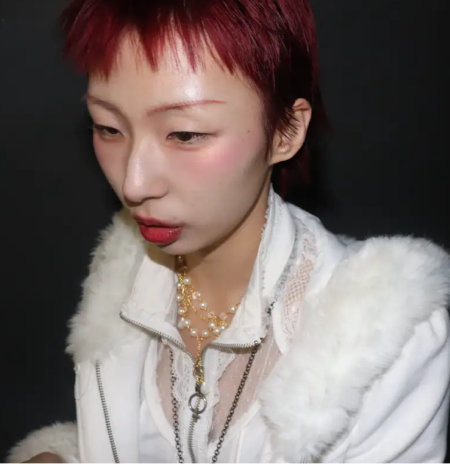
-
Ijin Kim Master's StudentFundamental Role of Philosophy, Aesthetic Experience, Technology and Aesthetics
- 2023, B.A., Art Studies, Hong-ik University
Ijin Kim engages in the reconstruction of existing aesthetic theories through the application of empirical methodologies. In particular, her research aims to explore contemporary perspectives on aesthetic experience through the use of virtual reality technology. She also considers the distinctive role of traditional aesthetic theory in this kind of new environment. Through interdisciplinary research such as this, she hopes to contribute to the revitalization of aesthetics.
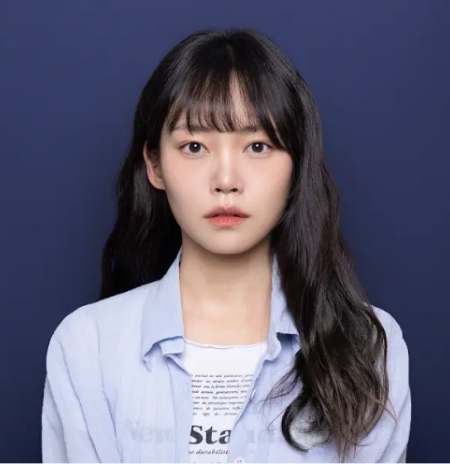
-
Jiwoo Choi Master's Student#19th-20th century English literature #Literary reinterpretation #Internet communities #Gender and Feminism
- 2024, B.S., Hallym University, Data Technology
- 2024, B.A., Hallym University, English Language & Literature
Jiwoo has a broad interest in 19th and 20th-century English literature as well as the reinterpretation of past and contemporary literary works, such as spin-offs and parodies. Also, using gender and feminist theory as a key perspective, Jiwoo is interested in the culture of internet communities, their social interactions, and issues of inequality within online spaces.

-
Junsang Im Master's StudentHuman-Computer Interaction, Information Behavior
- 2019, BEng, Seoul National University, Electrical and Computer Engineering
- 2020 ~ 2022, NAVER, Software Engineer
Junsang Im explores what new problems technologies such as internet and AI bring to individuals and society, and how to leverage our awareness of those problems to solve them. As a research methodology, he develops environments for specific user experiences to analyze the users' behavior, judgment, and cognition.
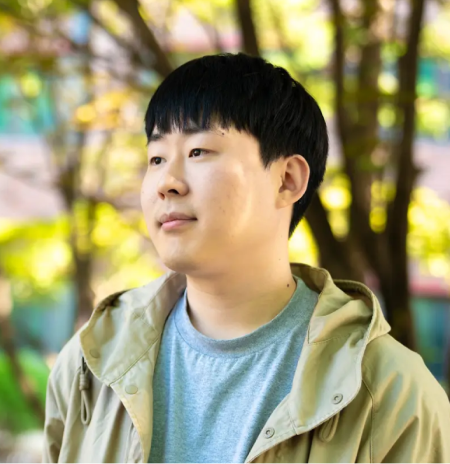
-
Minju Kwon Master's StudentUrban Inequality, Urban Centrality, Social Demography
- 2024, Bachelor of Arts., Korea University, Sociology
- 2024, Bachelor of Economics., Korea University, Statistics
Minju Kwon studied Sociology and Statistics in her undergraduates, where she developed her interest in analyzing society through quantitative data. Her current research adresses urban inequality with Computational Social Sciences techniques, focusing on social issues arised from urban centrality and demographic crisis.
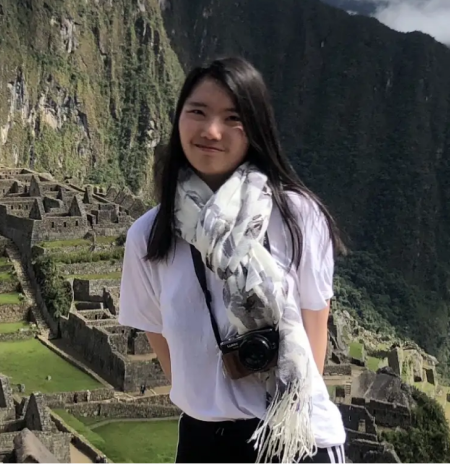
-
Myokyung Han Master's Student#Knowledge sharing #network #NLP #CSS
- MBA, Information and Media, KAIST, 2023
- B.S., Information Technology, Sungshin women's university, 2016
- Software Engineer, Shinsegae I&C, 2016-2021
Myokyung Han is a Master’s student in Digital Humanities and Computational Social Sciences (DHCSS) at KAIST. With a solid foundation in computational social sciences, her research focuses on how digital technologies affect the production and consumption of knowledge across various domains. To explore these impacts, she aims to integrate theoretical frameworks and analytical methodologies with new big data sources.
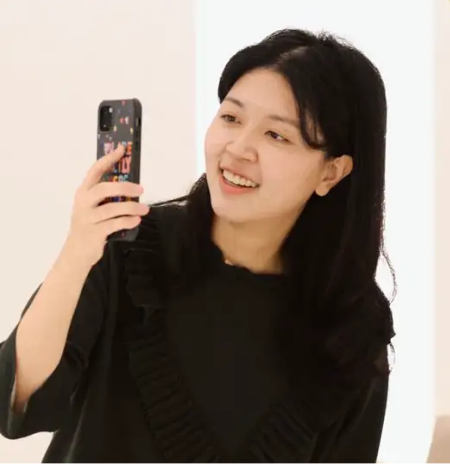
-
Suhyoung Choi Master's Student#Data Bias #AI Fairness #Machine Learning #Natural Language Processing
- B.A., Sociology, Chung-Ang University, 2023
Suhyoung Choi is a Master’s student in Digital Humanities and Computational Social Sciences, majoring Computational Social Sciences. Her research interests center on bias, inequality and discrimination represented on technology with computational methods. She is currently studying data science, and the application of computational methods solving social problems specifically caused by technology.
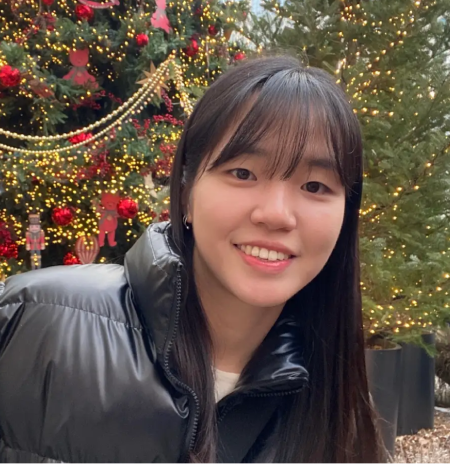
-
Woori Jang Master's StudentDigital Humanities and Literary Computation, Computational Methods for Literary Criticism, Cultural Contexts in NLP
- March 2013 - February 2019, Bachelor of Arts, Korea University, Department of Korean Language and Literature
After majoring in literature and working as a journalist, Woori Jang developed a deep interest in exploring the complex human narratives that shape what we call culture. She is curious about how these narratives can be analyzed through computational methods, especially using literary text as as a proxy. Currently, she is studying how science fiction literature in Korea interacts with and reflects the development of a technological society.
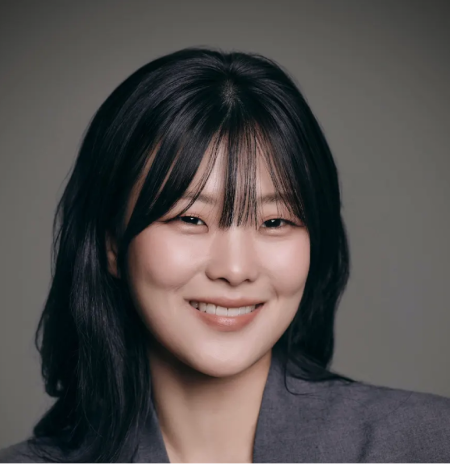
-
Yeongtaek Lim Master's Student#(Mis)Information #Online Knowledge Transmission #Conspiracy Theory
- 2023. B.A. Korea National University of Arts, Art Theory major, Cinema Studies minor
Youngtaek Lim focuses on the emergence and dissemination of (mis)information in public online media and its role in forming knowledge systems. He critically examines the media environment where political ideologies are treated as neutral information and spread accordingly. During his undergraduate studies, he explored the impact of visual media environments on society. Currently, he is investigating the effect of social backgrounds on individual speech in online social media. Additionally, he is an independent curator and critic.
